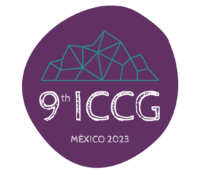Keywords: urban border space; European border regime; migration; differential inclusion; multiscalarity / Abstract: Among the more recent dynamics in the European border regime is the shifting of the border into the territory of the state, and thus into the city and urban space. Hence, migrants no longer encounter the border exclusively at the gates of the state territory, and thus at the moment of their entry. Their encounter with the border occurs long before, and increasingly very long after they crossed the physical border line as it is drawn on a map. These transformations highlight an understanding of the border as mechanism of differentiation and control, and when it comes to migration, to control not only the mobility of people but also mobile people. The border and the practices of bordering thus need be recognized as crucial mechanisms of ordering and othering that demarcate the social order of belonging. This notion entails that the border articulates social differences mapped onto space. Current shifts include the increased policing of city streets and urban spaces; the involvement of diverse local state and non-state actors into the operations of territorial stay, entry and removal; the practices of administrative and welfare bordering by urban actors, that implement, enact and create migrants’ legal status, rights, and entitlements, further shaped by intersecting categorisations of socio-symbolic bordering operating on divisions of racialization and ethnicization, class, gender, sexuality, or health, and undergird by diverging logics of belonging, control and deservingness. Thus, a plethora of urban actors has become involved in the making and unmaking of the border. This has placed to border in the everyday life of migrants but also of non-migrant ‘others’. The newer vocabulary in border studies has already suggested a view beyond the line, into borderlands, borderities, and borderscapes that conceptualize the border as a space of representation and enactment of distinctions, control and power, as much as of negotiation, contestation and resistance, allowing for alternative border practices and imaginaries to emerge. However, the role of the city and urban space has hardly received attention in this debate while those who re/border and those who deborder are largely considered distinct actors. In turn, scholars researching urban migration, its governance or resistance tend to share a certain local optimism toward inclusion and accommodation to diversity, as well as a rather bounded ontology of urban space. Yet, the small literature on urban borderlands points to socio-spatial exclusions as well. Building on these literatures, and moving beyond, in this paper I elaborate on three arguments. First, classically, border scholars have put great emphasis on the control function of the border, meant to filter and select, and thus to represent territorial selection and exclusion. Yet, the border not only selects the welcomed from the unwelcomed at the entry gates. It also creates and enacts ‘internal exclusion’ of migrants inside the state and within the space of city, and thereby contributes to ‘differential inclusion’, that is to partial, subordinate, graduated and fragmented positions. As a consequence, urban citizenship and control are intertwined. Second, and related to this, the making and unmaking of the border are interconnected, not only as parallel and potentially simultaneous processes, but also because including some may exclude other persons, at specific moments, or from certain realms. Lastly, while operating from the city space, internal border practices are tied to border externalization and include transnational operations, discourses, networks, and practices. This requires engaging with urban studies critique of taking the city merely as an ontologically given, bounded urban place, and suggests a relational and multiscalar approach to the city, and the border. Drawing on critical urban studies and geography, critical border studies, and the sociology and anthropology of migration the objective of this paper is to advance the theorization of the border by highlighting how the city and urban space connect to border making. To this end, rather than studying the border merely of or within the city, this paper proposes to study the border through the city, located within a multi/interscalar and relational framework. This is summarized by the notion of the city as urban border space. The paper uses empirical material and insights from my own research and from my team in the framework of the Urban Border Spaces-project as well as from current work of colleagues engaged in a recent conversation on internal border transformations in a variety of locations across the European border regime.
